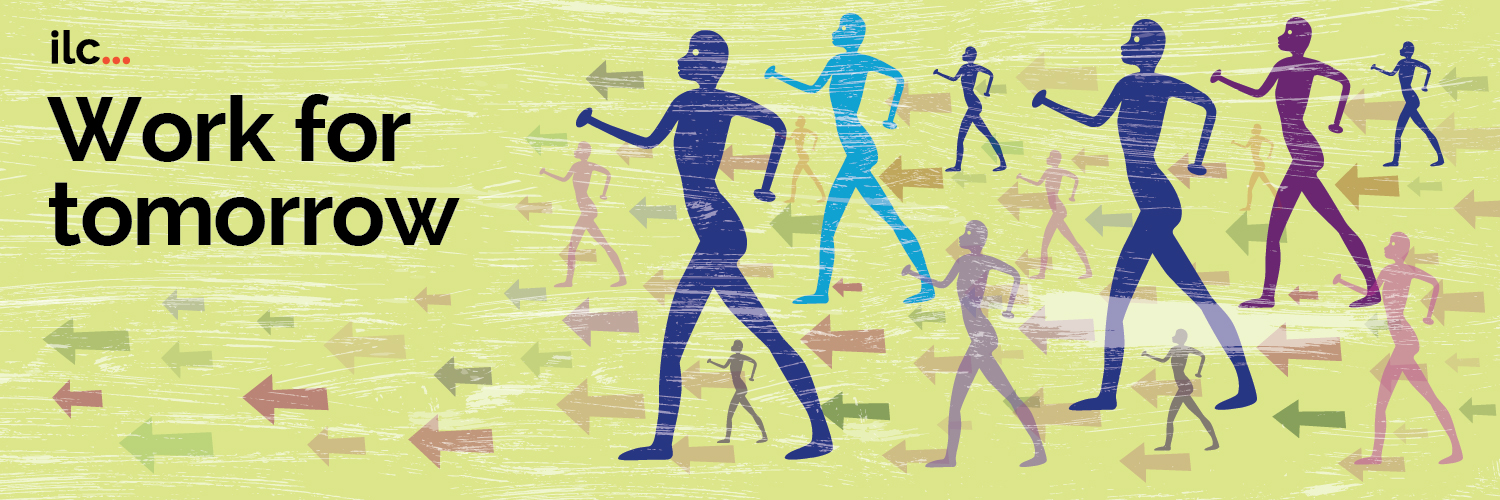28th January 2021
To maximise a potential “longevity dividend”, employers and governments need to wake up to the reality of an ageing workforce and make sure our jobs, our workplaces, our working patterns adapt in line with these changes.
Across the world, societies are ageing. And so are our workforces. We know that 1 in 3 workers in the G20 is already aged 50 and over – and this is set to increase to more than 4 in 10 by 2040. Alongside other major trends, like the growing role of AI and tech, this will fundamentally transform and reshape the workplace of the (not so distant) future – not just for older workers but for young and old alike.
The fact that we’re, on average, living and working for longer is generally good news and could yield significant economic returns to businesses and governments across the world. Indeed, if G20 economies employed older workers at the same rate as seen in Iceland, these countries could see a 7% gain to GDP – or an aggregate economic boost of USD 3.7 trillion. There’s also a lot of research that points to the fact that age-diverse teams work better and more efficiently, as they’re able to draw on a more diverse set of experiences.
But at the same time we know that we’re not doing enough to tap into this potential. Too often, poor health, caring responsibilities or ageism in the workplace force older workers out of the job market. Or keep people in jobs that aren’t good for them.
To maximise a potential “longevity dividend”, employers and governments need to wake up to the reality of an ageing workforce and make sure our jobs, our workplaces, our working patterns adapt in line with these changes.
Maintaining good health
Across Europe, over a third of those aged 16 and over have a long-standing illness or health problem. That proportion has increased from 30% to 36% just in the last decade. In the UK alone, about a million people between the ages of 50-64 are forced out of the workforce early as a result of health or care needs or caring responsibilities for a loved one. This is a huge loss of talent and one we can’t afford – especially now as countries across the world try to recover from one of the worst economic hits of the last century.
Making sure people live not only longer but also healthier lives is not just a moral but an economic imperative. And employers have a big role to play in making sure our workplaces encourage health, not just by supporting us to manage existing health conditions but in creating workplaces that promote physical and mental wellbeing throughout our working lives.
Building knowledge, skills and competence
As our working lives not only get longer, but change in shape – we are for example much more likely to have multiple careers in our working lives, and come in and out of work at different stages – we will need a big and evolving set of skills throughout our working lives and ensure that we’re sharing knowledge and skills within teams and organisations, including across different generations.
But this isn’t happening. We know that older workers are much less likely to receive training than their younger counterparts and we know that generational silos (especially in some industries) persist.
Addressing discrimination and supporting diversity
Moreover, we need to tackle ageism. Despite being illegal under the Equality Act, ageism in the workplace persists: Starting right in the recruitment process, where people are often told to “age-proof” their CVs to better their chances of employment, to the often implicit and internalised ageism that continues in the workplace.
We know that age-diverse teams are more innovative and efficient. But to benefit from the diverse experience a multigenerational workforce can bring, we need to address all forms of ageism, including implicit or internalised bias and make sure all voices are heard.
Adapting the workplace
Flexible working has been a buzzword for decades now. But despite the hype, actual progress and implementation has been slow. Before the pandemic, only around 20% of employees in Europe worked from home, either on a regular or occasional basis.
In an ageing world, we will be more likely to have multiple periods in our lives in which we are caring for a loved one, be that a child, a parent, a grandparent, a partner or friend – or a combination of those. We’re also more likely to have different periods of learning and retraining throughout our working lives. And we may well need more phased approaches to retirement.
There is a big longevity dividend – social and economic – that can be drawn from longer and changing working lives, but governments and businesses are missing a trick if they fail to adapt and innovate in line with these changes happening around them.

Work for tomorrow – Innovating for an ageing workforce
The International Longevity Centre UK (ILC) have launched an international competition, supported by the Innovation Resource Center for HR, that will seek to identify and award the most promising innovations responding to an ageing workforce across four challenge categories:
- Maintaining good health;
- Building knowledge, skills, and competence;
- Addressing discrimination and supporting diversity; and
- Adapting the workplace.
To find out more and apply, visit: https://ilcuk.org.uk/work-for-tomorrow/
Prepared by:
Lily Parsey
Global Policy and Influencing Manager
International Longevity Centre UK (ILC-UK)


